I’m taking some time offline to enjoy screen free activities. In the meantime, wishing you a very Merry Christmas!
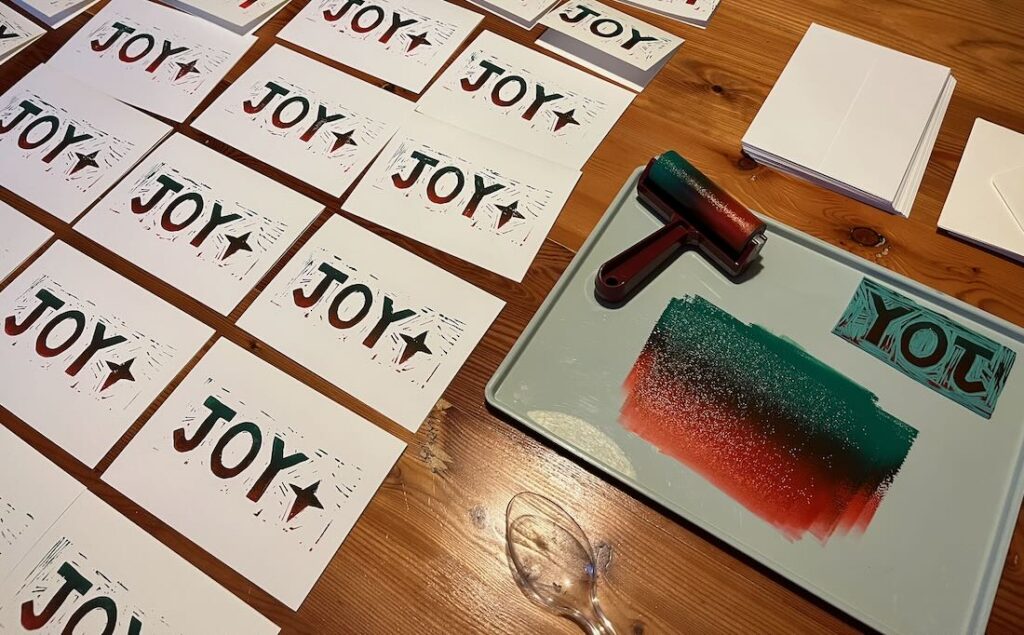
I’m taking some time offline to enjoy screen free activities. In the meantime, wishing you a very Merry Christmas!

A society in which consumption has to be artificially stimulated in order to keep production going is a society founded on trash and waste, and such a society is a house built upon sand.
Dorothy Sayers
This feels like a fitting quote for Black Friday weekend.
I’ve posted Dorothy Sayers before, but her writing contains much wisdom on work and life. Check out her essay Why Work? for more.
yak shaving
- Small, tedious tasks you need to complete in order to make progress on your real project
The term Yak Shaving originated in the 1990’s, capturing the frustrating work that you need to do before you can actually do your work. This exists in all domains, but is especially relevant in programming; you follow the instructions to install something which requires installing something else, which breaks something else … until hours later you’re frustrated and have completely forgot what you were originally trying to do.
Here’s a real-life example:
My wife asks for a coffee. Of course I say yes!
Wife asks what I’m doing. “Making coffee, what does it look like!”
This might be extreme, but I find it happens frequently, so happy Yak Shaving 🙃
P.S. Here is a classic video on Yak Shaving from Malcolm in the Middle.
I found this shot in my photos recently; it’s me (many years ago) mourning a batch of homebrew that went bad during the secondary fermentation.
As someone who loves to experiment and make my own things, whether it be kombucha, wine, or coffee – I am reminded that a key to success is embracing failure. This doesn’t mean seeking it out, but rather being okay when something doesn’t turn out right, and being willing to reinvest the energy and time to try again.
I no longer brew beer, but have started making wine from the grapes in our yard. Every year it gets a bit better, but there are always hard lessons too. It is disappointing when you try something after 10 months and realize it’s no good, but that is what the next year is for!
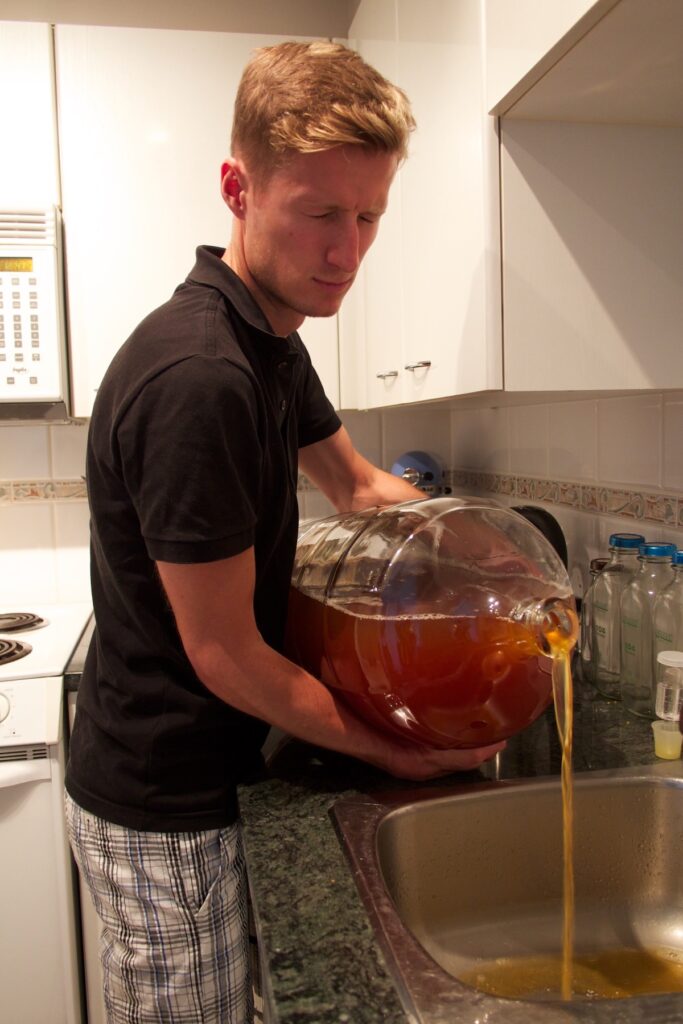
As a technologist, working in the software industry, and as a Christian, thinking deeply about technology, faith, and work – I’ve been closely watching the rise of AI, looking at both the opportunities and the challenges. My goal here is to summarize the biggest issues we as Christians (and everyone concerned with human flourishing) should be aware of.
AI is a very broad category that covers many technologies, however the majority of AI getting news and usage is generative AI, specifically the models and services created by the largest tech firms in the USA (and China to a lesser extent). This will be the focus of the essay.
To help bring clarity, I’ve created a simple framework, corresponding to the process of producing and using generative AI. At each step I’ll highlight the biggest issues I see. Here is the four step framework:

kayfabe
- Portraying staged events as real, especially in professional wrestling
Although this is primarily a wrestling term, I think it is a great word to bring into general use. You can read more about it on Wikipedia
It brings to mind the story of Builder.ai – a lauded AI startup that sold an AI solution for creating apps and was valued at $1.5 Billion dollars, but actually just had 700 developers in India working behind the scenes. I guess in this case another term would just be fraud.
I’m currently working on a summary of my thoughts on AI and it’s challenges, but it is shaping up to be longer and more work than expected.
In the meantime, here is an excerpt from a great essay by Will Manidis that explores our original call by God to do meaningful work, and the temptation to shortcut that work.
Humanity’s first sin was, in part, choosing the easy shortcut over the meaningful process – preferring effortless gain to the demanding but fulfilling work of tending the garden.
Will Manidis, Craft is the Antidote to Slop
I’m currently reading through a collection of poems from Thomas Merton, a Trappist monk who was a prolific writer and social activist.
This excerpt from Figures for an apocalypse (Part V) really resonated, contrasting the promised future of unbridled capitalism with the stark reality of it’s environmental cost and human toll.
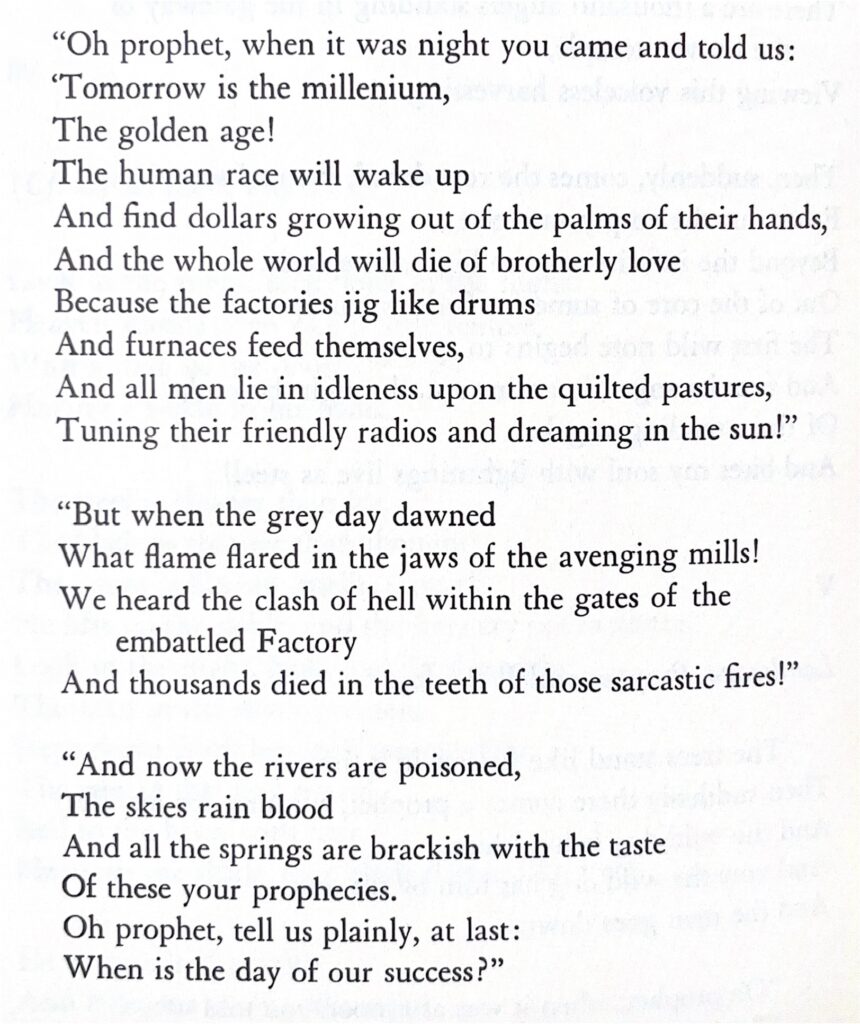
Thanksgiving is such a good reminder to stop and reflect on the many blessings in our lives. In difficult seasons (and sadly in good ones too) I can so easily focus on what I don’t have, or what I’d like, rather than seeing the display of God’s abundance all around me.
So today, I’ve been trying to see everything that I can be thankful for; while making breakfast it looked something like this:
Gathering ingredients from the fridge...
Lord thank you for refrigeration!Picking a pear from the fruit bowl...
Lord thank you for fresh fruit!Washing the pear...
Lord thank you for indoor plumbing & clean water!Eating breakfast...
Lord thank you for the ability to taste and enjoy food!Child persistently requesting more cheerios...
Lord thank you for the blessing of children!
I will admit that this didn’t continue for too long, but it was amazing how many things I found to be thankful for, and the number of sub-blessings within each. May your thanksgiving remind you of the good giver of every gift.
Give thanks to the Lord, for he is good,
Psalm 136:1
for his steadfast love endures forever.
I’ve been slowly working my way through Wendell Berry’s collection of Sabbath Poems called Another Day.
As a nonagenarian with deep connections to farming and care for the land, he has witnessed significant changes in how we extract from the earth for profit at unprecedented scale.
Berry advocates for connection to the place we live, both the people and the natural world, and pushes back against the dehumanizing effect of technology and the raw exploitation of capitalism – arguing that the benefits don’t outweigh the costs.
It is well worth a read. The poem below, from 2014, captured me with its prescient view that technology will both replace our work (AI) and bring division rather than peace (social media etc).
The expert on resistance to torture
Wendell Berry, Another Day, IX (2014)
becomes an expert torturer.
The machine that helped a woman
to do her work replaces her at work.
The machine that helped a man to think
ticks on in absence of the man.
The communications technology that was
to become the concourse and meeting
of all the world, bringing the longed-for
peace to all the world, becomes
a weapon to break the world in pieces.
Poor Richard’s Alamanck was an annual publication by Benjamin Franklin from the mid-1700’s. An enduring legacy of the almanac is a large number of sayings and maxims, many still used today.
I was able to borrow a compilation of these sayings from the library and found it quite a fun read. Some sayings have not aged well, but many contain timeless life advice. I’ve included a few of my favourites below.
After crosses and losses, men grow humbler and wiser
How many observe Christ’s birth-day; How few his precepts!
O! ’tis easier to keep holidays than commandments.
The poor have little, beggars none;
the rich too much – enough not one
Three may keep a secret, if two of them are dead
He does not possess wealth, it possess him
Good heals and the doctor takes the fee
Words may show a mans wit, but actions his meaning
A wise man will desire no more than what he may get justly, use soberly, distribute cheerfully and leave contentedly
I don’t recall where I found this poem, but it resonated with me, as its both funny and true (though I’m not sure if we use rags for paper any longer).
Rags make paper
Anonymous
Paper makes money
Money makes banks
Banks make loans
Loans make beggars
Beggars make rags
I’ve always loved plants, and have been a semi-serious gardener for the past 10-12 years. Though still a beginner in many ways, I am well acquainted with weeds.
I’ve been a Christian for most of my life, but have been serious about my pursuit of Christ-likeness for the past 20 years or so. Though I still have far to go, I’m well acquainted with sin.
These two pursuits have made me realize how similar sin and weeds are, and as I garden, I’m tangibly reminded of the battle against both.
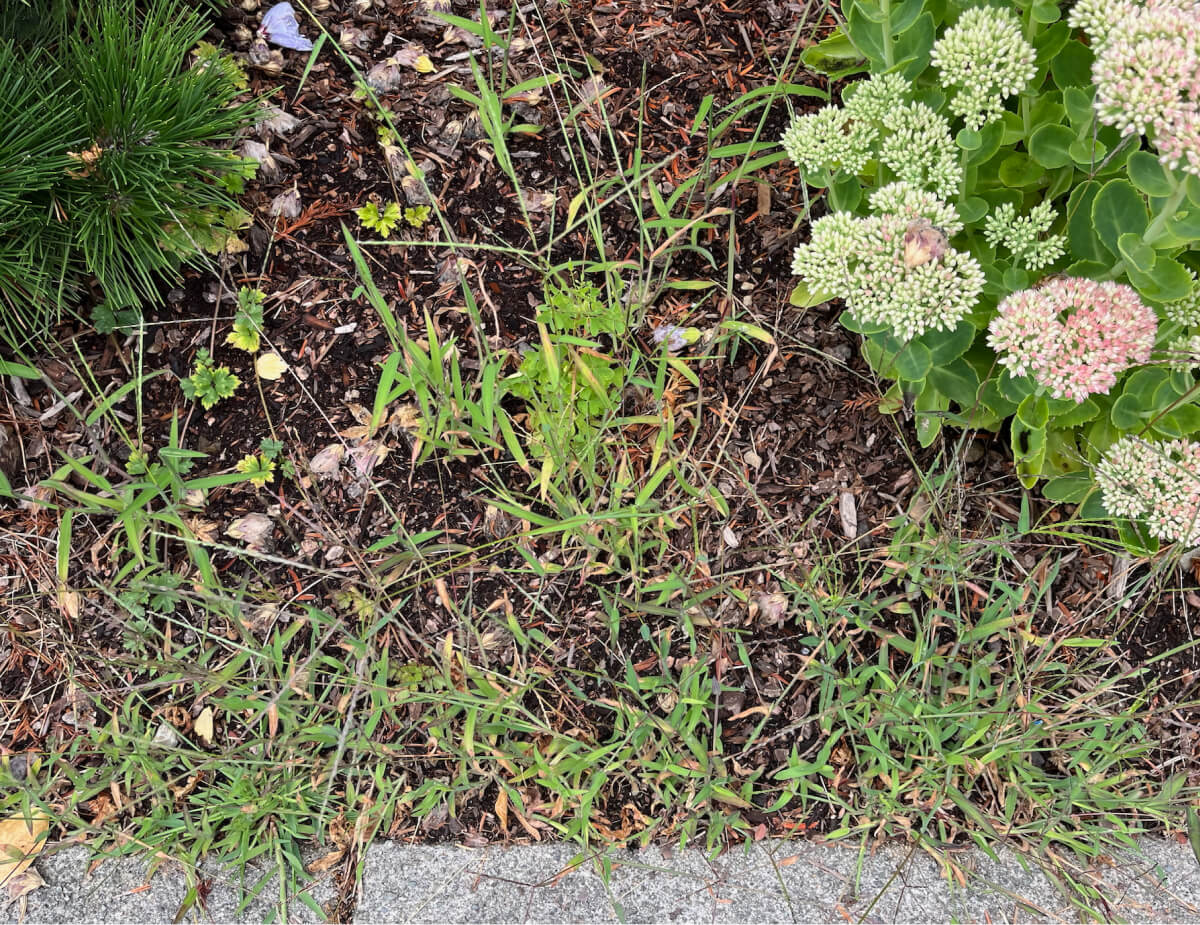
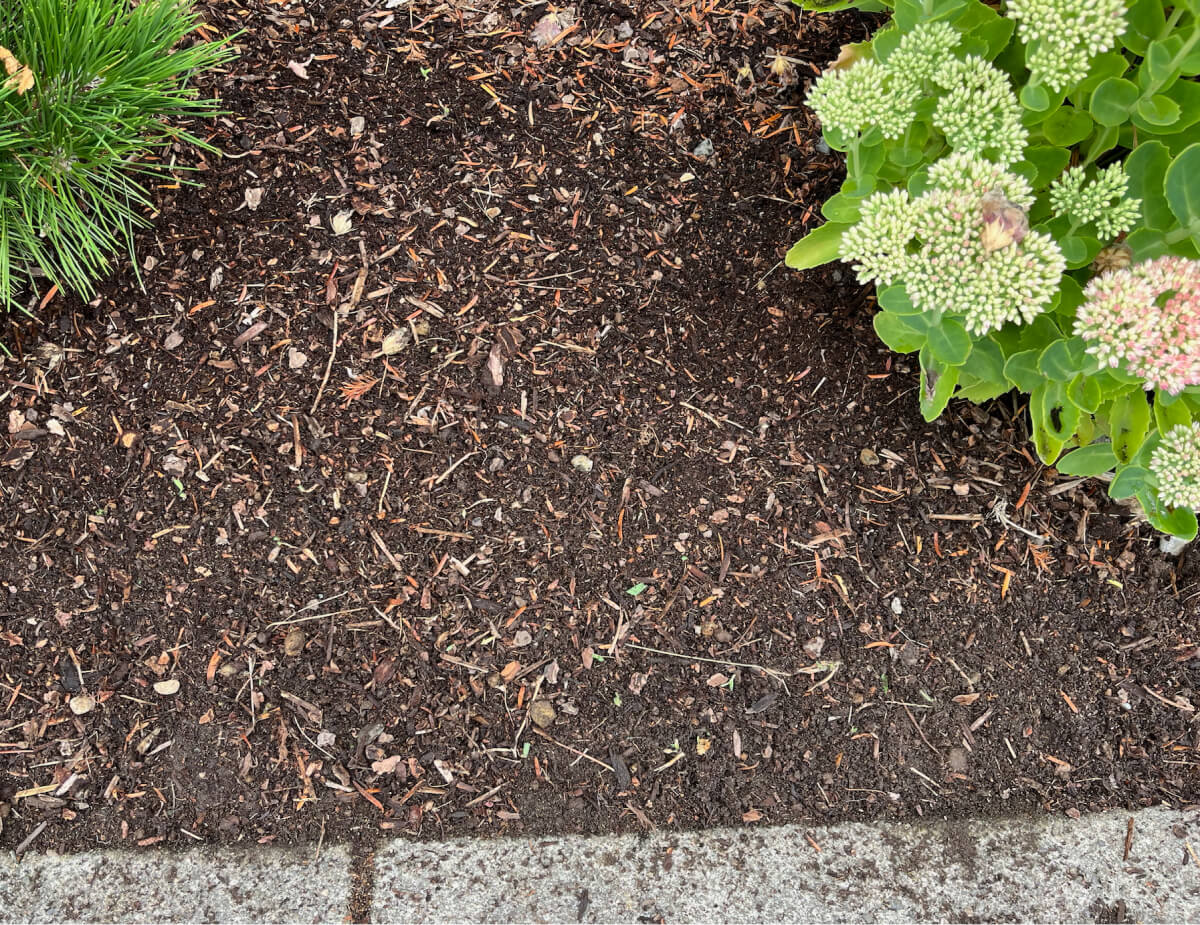
A small section of the garden, before and after weeding
Over 20 years ago this was the quote I used in my high school yearbook. I’m not sure how serious I was, but it is a good one.
Give a man a fish, and you feed him for a day.
Unknown
Teach a man to fish, and you feed him for a lifetime.
Recently I heard a variant of it, and think it’s better – but I may just have an odd sense of humour.
Give a man a fire and he’s warm for a day,
Terry Pratchett
but set fire to him and he’s warm for the rest of his life.
Sitting in our garden on a sunny summer day, I am reminded of what an amazing space it is, nature in the city. The breeze causes dappled sunshine to break through the leafy canopy above me, busy bees flit from flower to flower, and wasps scratch at the cedar posts. I also hear the hum of the nearby road, and the sound of neighbours – music, talking, and washing dishes.
Getting away from busyness to spend quiet time with Jesus is vital for our faith. Yet we don’t do that apart from the people we’re called to be in the world, sharing Jesus’ love tangibly with those around us.
Being in the garden gives a blend of both, a quiet place to read, listen, and pray, but also to remember where I am, in the midst of a city with millions of souls created in God’s image. My call is to be a light here, not to everyone, but to everyone God leads me to. The garden reminds me to find that balance between stillness & quiet, and work in the real world.
Where is the wisdom we have lost in knowledge?
TS Eliot, The Rock
Where is the knowledge we have lost in information?
This quote from TS Eliot’s play, The Rock was written in 1934, but seems even more relevant today. We are amassing an ever increasing amount of information, and can now get an answer for anything from AI (though not necessarily the right one). However, we forget that the value is not just in the information but the wisdom that it took to gain it.
How can we be people that value the hard work of gaining wisdom in an age of instant gratification and ease? How do we push back against hoarding information without truly understanding the world in which it belongs?
I consider the success of my day based on the seeds I sow, not the harvest I reap.
Robert Louis Stevenson
This is how I want to evaluate my days. Not based on my output, but if I invested my time in the right things. It may feel less productive, but that is okay.
The Bible is full of gardening analogies that spoke to the mainly agrarian culture of the time. My favorite of these is in the Gospel of John, where Jesus calls us to abide (or remain) in him, summing up the secret of the Christian life.
I am the vine; you are the branches. Whoever abides in me and I in him, he it is that bears much fruit, for apart from me you can do nothing.
John 15:5 ESV
Although I have known and studied these verses for years, it recently got a fresh meaning for me.
In our garden there are two grape vines that I am beginning to care for more earnestly. I cut off one of the branches, but left it in place. The next day, all the leaves were completely withered and dead; I was surprised at the speed.
This immediately made me think of the verse above. When Jesus says apart from him we can do nothing, he doesn’t mean we can limp along on our own, but without him and the life he provides as the “vine”, we wither quickly and completely.
Compare the before and after of my grape branch below 👇
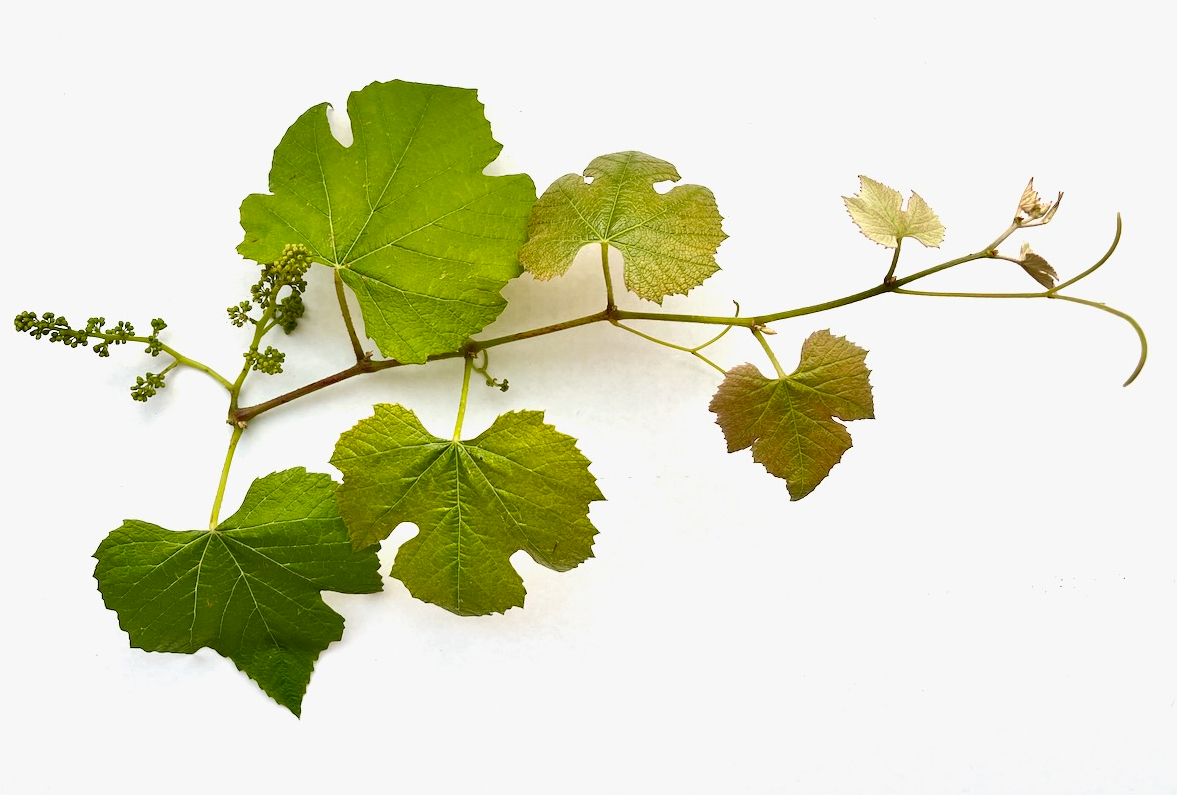
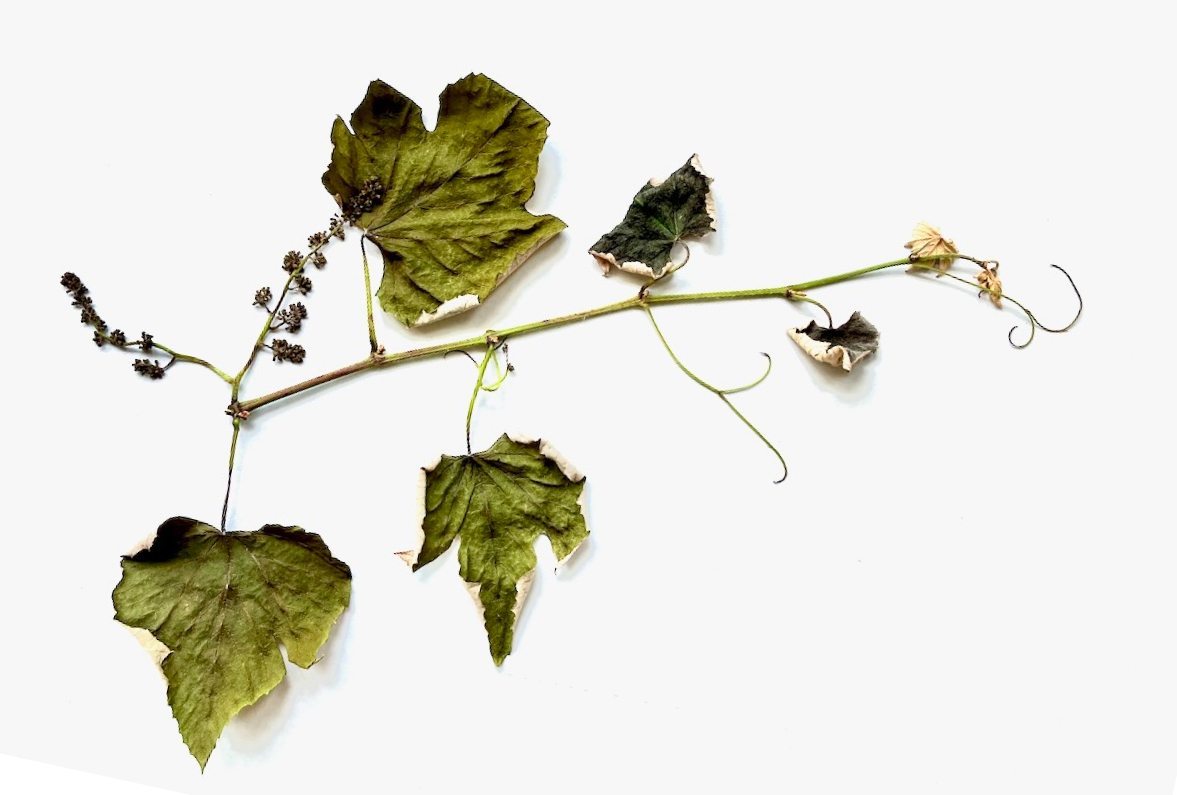
Men imagine that they communicate their virtue or vice only by overt actions, and do not see that virtue or vice emit a breath every moment.
Ralph Waldo Emerson
This quote is a good reminder of how every thing we do, especially the small things, show our true character and what we actually believe. What does your life (and my life) say?
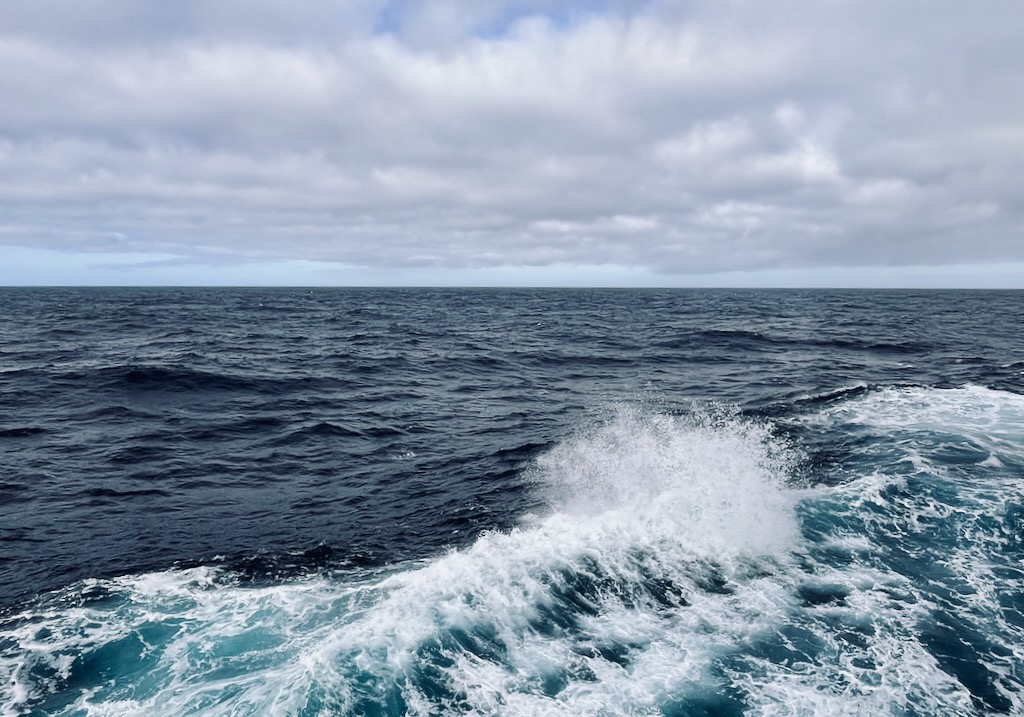
Let the sea roar, and all that fills it;
Psalm 98:7 ESV
the world and those who dwell in it!
As I travel through a somewhat turbulent North Pacific ocean, with nothing but water as far as the eye can see, the verses in the Psalms that speak of the seas are seen in a new light.
I am in awe of their size and power, and my own insignificance and lack of control in comparison. And yet, these verses are a comfort, as they tell us that these seas are created by our God, that they (and all in them) worship him, and that his love for us is as vast as the ocean!